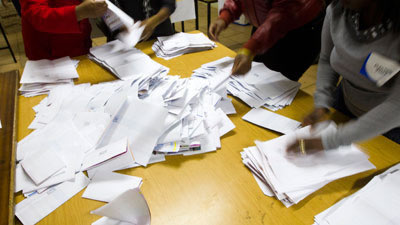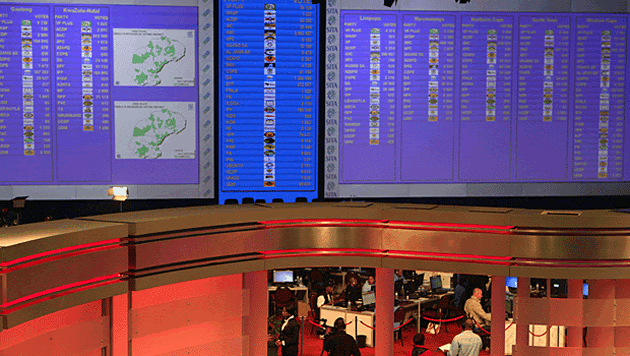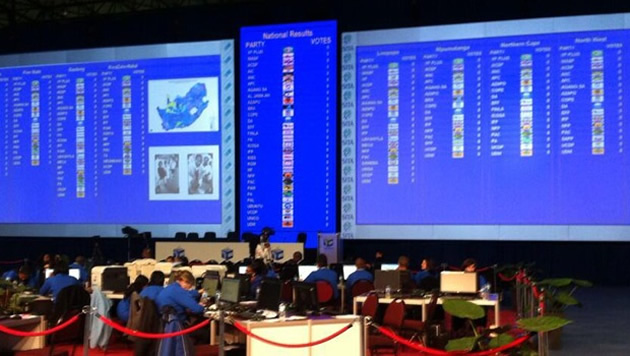EFF and NFP are the new emerging centres of power in SA Politics
Lubna Nadvi
The performance by EFF and NFP in the 2014 elections is a clear indication that the winds of change in South African politics have begun to blow with some serious gusto bringing about potentially new strategic centres of power. Positioned at number 3 and number 5 respectively in the national results hierarchy, these fairly new parties are proving the naysayers wrong by illustrating that disenchanted individuals that break away from other larger parties and constitute their own political formations (however unfeasible their prospects may seem), can actually exert a significant degree of influence on voters who would otherwise have voted for the more established party. Of course the success of their endeavour depends on the nature and credibility of their message and how much this appeals to the broader electorate.
The example of EFF perhaps makes the point more strongly. A group of once ANC affiliated youth politicians who were ousted from their positions within the ruling party seek to continue pursuing political life by mobilising others looking for a new political home and create a new entity which in the space of less than a year is able to present itself as a force to be reckoned with. Albeit that it’s 6% + support in 2014 is slightly less than that of COPE’s 7.4% showing in the 2009 elections, it is still a significant result, which points to a few important things that we must take note of. Firstly, the EFF fashions itself more as a movement that is seeking to achieve economic equality than a political party (which COPE didn’t really seek to do). Hence its ideological appeal exists beyond the realm of contesting elections. Clearly however it sought to enter electoral politics as it realised that its only way of tangibly achieving its goal was to enter the national assembly where real political power can be exercised. Secondly as much as one may want to vilify the EFF and its leadership, their somewhat unconventional strategies and unrealistic manifesto have actually managed to capture the imagination of a disillusioned electorate that wants to send a strong message to the ruling party about its unhappiness with the status quo in South Africa. And for those voters who were not really protesting against the ANC by showing support for the EFF, they clearly found something attractive about the EFF, even if it was just the symbolic red beret, denoting a kind of revolutionary politics, which seems to have slipped away from the ANC, over the last 20 years.
The NFP is a particularly interesting case study of how gender / ethnic identity dynamics can create a new political force. Zanele kaMagwaza Msibi, like Julius Malema of the EFF is the distinct face of her political party, the NFP. But unlike Malema, her entry into a more visible profile was not really dogged by the kind of controversy that followed him, but rather as a consequence of a succession debate within the IFP. Her decision to start her own party (together with others who had become disillusioned with the IFP), was certainly a bold move given the traditionally patriarchal domain, which she had left, and the somewhat ethnically conservative Zulu electorate which was ultimately going to be part of her support base. There are some factors that make the NFP a party to also follow closely. Firstly entering the political space contesting the 2011 local government elections was a smart move as it gave the party an opportunity to be tested in a governance and service delivery context. Given that they seem to have performed relatively well over the last 2 years has enabled the party to illustrate to its support base and certainly to potential voters that it is no novice but a serious player, which can address the needs of its constituencies. Secondly it appears to be a more pragmatic entity which does not rely simply on ideological rhetoric (which has been EFF’s strong point thus far), but actual delivery in the rural and other areas where it has a presence in the local municipality. And thirdly, the leader of the party does as a woman present the potential to shift and reform the historically patriarchal attitudes and values which have shaped and defined the Zulu electorate and political landscape of rural KZN. All of these factors combined seem to articulate the prognosis that the party’s prospects for further growth and possibly taking over the IFP and even EFF in future election contests are relatively strong. However this growth would have to be a steady one, over the period of the next 5 – 10 years. It would be important for the NFP to not make the kind of mistake that COPE has, where it entered into internal factional battles, which have now left the party denuded and almost destroyed.
The EFF and NFP are certainly the parties to watch over the next 5 years as they re-shape the power dynamics in South Africa not just nationally, but in the provincial legislatures where they have secured seats.-SABC
- Lubna Nadvi is an academic, researcher and political analyst based at UKZN







Comments